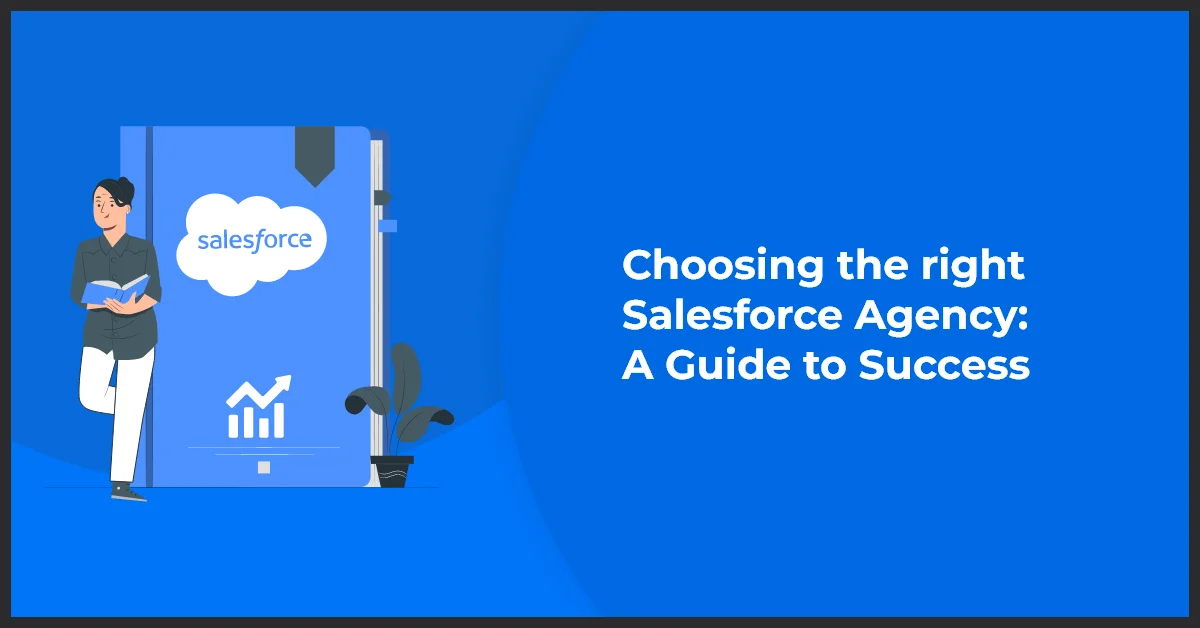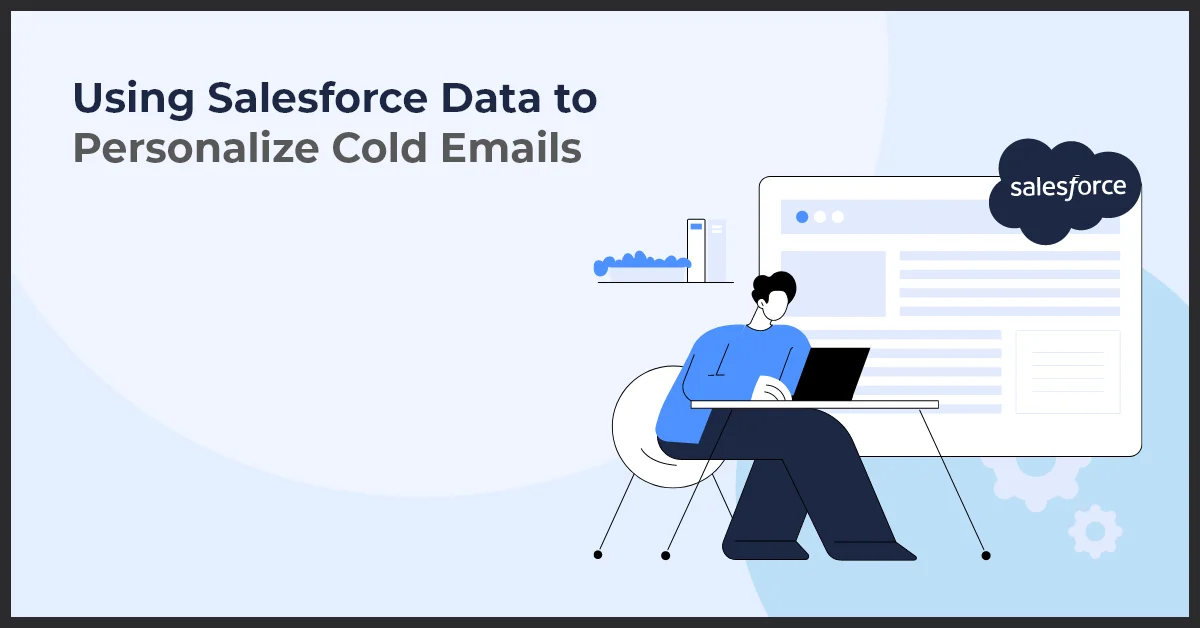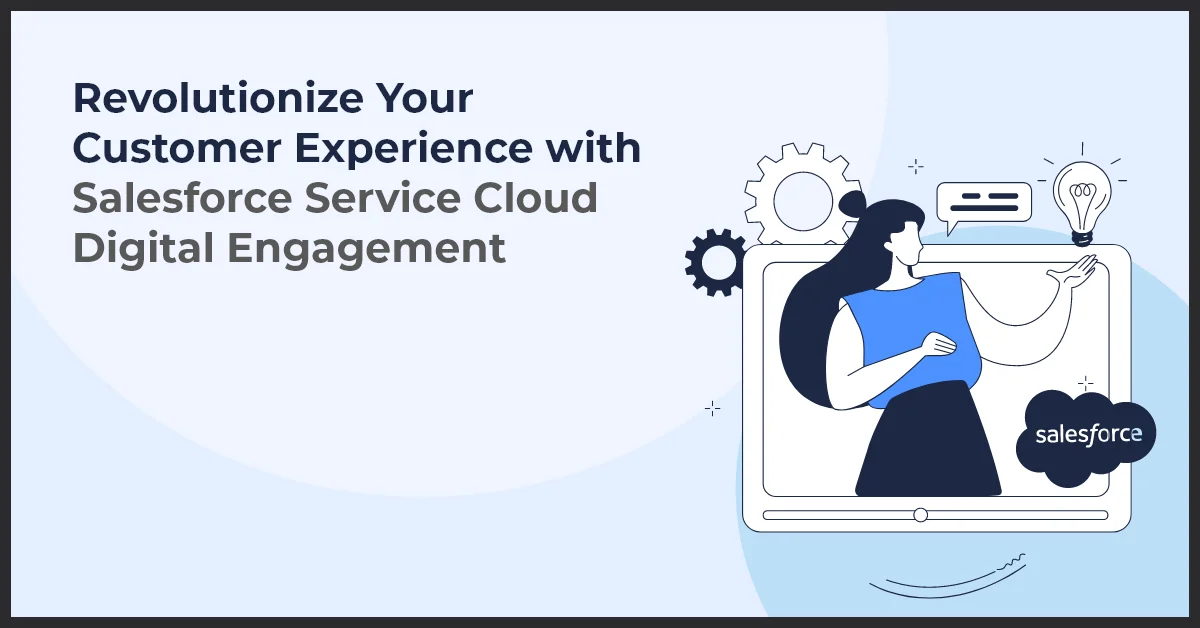Salesforce Consultants: Your Key to Achieving Data Excellence

Published on: May 9, 2024
Updated on: July 17, 2024
1547 Views
- Salesforce
11 min read
Ensuring high-quality data is crucial for getting the most value out of your Salesforce instance. However, many organizations struggle with inaccurate, incomplete, or inconsistent Salesforce data.
To truly unlock the potential of Salesforce data, organizations must embark on a strategic quest, and the role of a seasoned Salesforce consultant becomes pivotal in navigating this odyssey.
These experts help assess, cleanse, monitor, and optimize Salesforce data, forming a key strategy for ensuring data integrity.
From implementing best practices to utilizing built-in Salesforce tools and partner expertise, this blog post provides actionable steps to achieve Salesforce data integrity.
What is Data Quality?
Data quality measures data's ability to meet an organization's accuracy, validity, completeness, and consistency standards. This concept is a cornerstone of data management, ensuring the reliability and trustworthiness of data for analytics, reporting, and decision-making.
Poor data quality can severely affect customer service, employee efficiency, and strategic initiatives. Monitoring data quality allows businesses to identify and address issues compromising data integrity, guaranteeing its suitability for specific purposes.
Why You Should Care About High-Quality Data - A Statistical Picture
Let's unravel the statistical panorama that vividly paints the significance of high-quality data in the business landscape.
- Businesses lose an estimated $600 billion annually due to poor data quality[1].
- The U.S. economy suffers around $3.1 trillion annually from poor data quality[2].
- 94% of organizations believe their customer and prospect data is somewhat inaccurate, leading to negative impacts [3].
The Benefits of High-Quality Data
Poor data quality can significantly dent any organization's bottom line. Here are some other reasons why high-quality data matters:
- Personalize Customer Interactions: High-quality data helps tailor customer experiences. For instance, an online shoe store can improve the customer experience by refraining from offering discounts on items that customers have recently purchased. It can help create personalized and targeted offerings. Also, accurate data enables targeted marketing and personalized offers, increasing the likelihood of contract renewals and upselling.
- Anticipates Customer Needs: Accurate data allows businesses to predict and meet customer needs more effectively. For example, an online clothing store can offer season-appropriate clothing aligned with individual customer preferences.
- Resolves Issues Efficiently: Access to accurate data enables faster resolution of customer issues, enhancing satisfaction and loyalty.
- Reduces Costs Through Data Quality: Investing in data quality tools improves customer service and cuts costs. By focusing on accuracy and consistency, businesses can save time, prevent mistakes, and minimize fraud or compliance risks.
- Improves Decision-Making: High-quality data leads to better decision-making. It allows organizations to make accurate, timely decisions, identify trends, and forecast future outcomes, thus guiding strategic planning.
Identifying Signs of Poor Data Quality
In data management, the saying "garbage in, garbage out" rings true – poor input results in poor output. Recognizing the signs of data quality issues is crucial for any organization. Here are the signs indicating poor data quality:
- Mistakes in Data Entry: Errors made during data entry, including typing mistakes or entering the same information twice, can mess up your data. These mistakes lead to confusion and can waste time and resources. Different data entry styles can also confuse. For instance, "St." vs. "Street" leads to mixed-up records and analysis problems.
- Missing Information: When data is incomplete, it's hard to trust or use it effectively. Missing details can lead to wrong decisions and ineffective strategies.
- Duplicate Data: Having the same information more than once in your system is a big problem. It causes confusion and wastes space. It's essential to have tools that can find and fix these duplicates.
- Outdated Data: Data gets old and useless. People change jobs or preferences, making your old data irrelevant. Regular updates are necessary to keep your data fresh and useful.
- Lack of Data Governance: Without data governance, there's no clear data responsibility. This results in varied methods and inconsistent data across teams.
- Mismatched Data Classification: Different labels in Salesforce CRM, like "corporate clients" vs. "business customers," complicate data analysis and insights. It is hard to group data, analyze it properly, or get useful insights.
Utilizing Salesforce Data Tools to Maintain Data Quality
The Salesforce platform and its ecosystem, including AppExchange, offer a comprehensive suite of tools for establishing and maintaining high data quality. From monitoring and validation to cleansing and duplicate management, these features ensure your sales team is relying on accurate, complete data.
AppExchange is an excellent resource for finding specialized solutions when the out-of-the-box features don't meet specific needs. By leveraging these tools, businesses can enhance data reliability and efficiency, paving the way for informed decision-making and streamlined operations. Here’s how:
- Utilize Duplicate Management for Reliable Data: Accurate data is crucial for business success, and Salesforce offers Duplicate Management to ensure data reliability. This tool helps reduce and prevent duplicate records, fostering trust among your sales team and aiding compliance with data protection laws. Salesforce provides individual and organizational solutions for managing duplicates and progress-tracking features.
- Enhance Data with Third-Party Integration: Enhancing your records with external data sources can empower your sales team. Salesforce's Lightning Data and Data.com provide access to extensive firmographic, industry, and regional data. While Lightning Data packages are directly licensed from providers, Data.com offers a unified interface for integrating this third-party data into Salesforce, enriching your customer and prospect information.
- Advance Data Cleansing and Validation via AppExchange: While validation rules check data format, they can't confirm data validity. This is where AppExchange comes in, offering partner products for advanced validation, including address, email, and bank verification. These apps, installed within your org, allow for cloud-based data lookups and bulk verification, which is beneficial during the data cleansing phase.
- Create Reports and Monitor Data Health with Dashboards: Salesforce offers Data Quality Analysis Dashboards. It’s a feature providing preconfigured dashboards that leverage custom fields on standard objects to measure data quality and record completeness. These dashboards are instrumental in profiling data to gauge the extent of data quality issues and for continuous data health monitoring.
- Utilize Validation Rules: Salesforce validation rules guarantee that data fields contain necessary values, especially when there's data dependency within record statuses. Customize these rules with additional checks, like a custom setting bypass for specific scenarios, such as mass data loads of clean data.
- Gain Data Usage Insights with Salesforce Optimizer: Salesforce Optimizer is a valuable tool for understanding data completeness and timeliness. Its data list section reveals field usage, helping to identify underutilized or empty fields. This feature supports better decision-making on which fields to maintain, modify, or remove for optimized data usage.
Best Practices for Enhancing Data Quality in Salesforce
Improving data quality is vital for informed decision-making and efficient operations. Prioritize these strategies to elevate customer satisfaction, minimize risks, and gain a competitive edge:
1. Data Cleansing and Deduplication
Data cleansing is essential for maintaining the integrity and usability of your Salesforce CRM data. It involves removing duplicates and inaccuracies. Techniques include using algorithms to identify potential duplicates based on names, addresses, emails, and phone numbers. Before starting this process, define clear standards for how accurate, complete, and consistent your data should be.
2. Data Profiling and Auditing Techniques
Regularly auditing your data, setting up automated quality checks, and using data profiling and cleansing tools are essential. Data profiling involves assessing data for quality, completeness, and consistency. Techniques include statistical analysis to detect anomalies, pattern recognition for data integrity, and outlier detection for spotting potential errors.
Regular data audits ensure data integrity and adherence to quality standards. Tools like Talend Data Quality, IBM InfoSphere Information Analyzer, and Informatica Data Quality offer comprehensive analysis and auditing capabilities.
3. Data Governance
Data governance is fundamental for data quality, involving frameworks, policies, and procedures for data management. It ensures data integrity, consistency, and compliance with regulations like GDPR or CCPA. Data stewards are key in overseeing data assets and maintaining quality standards.
Promote a culture of collaboration among different stakeholders, form cross-functional teams for data management, and encourage a sense of responsibility and ownership for data quality.
4. Education and Training
Providing comprehensive data quality training to data stewards equips them with the knowledge and skills to oversee governance processes effectively. Educating regular Salesforce users on best practices for accurate, consistent data entry is also essential.
Promoting organization-wide data literacy and quality awareness through incentives like workshops, discussions, and knowledge sharing helps instill a data-driven culture. These practices enable stakeholders to uphold quality standards, identify issues, and implement improvements.
5. Master Data Management (MDM)
MDM centralizes the management of critical data entities, ensuring data consistency and integrity. It eliminates data silos and harmonizes data across systems, supported by integration and synchronization mechanisms. MDM's systematic approach includes data profiling, cleansing, standardization, and validation.
6. Data Quality Metrics and Reporting
Data quality metrics like completeness, accuracy, consistency, and timeliness guide decision-making and operational efficiency. Monitoring these metrics through sophisticated tools ensures data health and enables proactive improvement. Continuous measurement and improvement are crucial for maintaining high data quality standards.
Role of Salesforce Consultants in Data Quality Enhancement
Salesforce consultants are certified professionals who deeply understand Salesforce CRM. They take the time to understand a company's unique requirements and guide them in customizing Salesforce CRM to meet these needs. Their role is to ensure that Salesforce is not just another tool but a tailored solution that genuinely fits the business's objectives. Here are some key ways Salesforce consultants safeguard data quality:
Data Assessment and Planning
- Analyze Existing Data: Consultants dive deep into your current data landscape, identifying inconsistencies, redundancies, and gaps.
- Define Data Quality Goals: They collaborate with stakeholders to establish clear metrics for success, aligning data initiatives with overall business objectives.
- Develop a Data Governance Strategy: This involves defining data ownership, access controls, and policies to ensure consistent data management.
Data Cleansing and Migration
- Data Cleanup: Consultants apply techniques like deduplication, standardization, and validation to transform messy data into a clean, coherent form.
- Data Migration: Whether moving data from legacy systems or within Salesforce, consultants utilize secure and efficient methods to transfer data safely and accurately.
- Integrations and Automation: They build seamless integrations with other systems and automate data validation and cleansing processes to minimize manual effort and errors.
Data Monitoring and Optimization
- Real-time Data Quality Monitoring: Consultants utilize tools and dashboards to track data health, proactively identifying and addressing quality issues.
- Reporting and Analytics: They provide data-driven insights into Salesforce usage and performance, empowering stakeholders to make informed decisions.
- Continuous Improvement: The process doesn't end with achieving initial data quality targets. Consultants encourage a culture of constant improvement, regularly reviewing and refining data strategies as needs evolve.
Salesforce consultants act as trusted advisors, working alongside internal teams to implement best practices, foster data awareness, and create a data-driven culture that empowers your business to reach its full potential. Here’s how to hire a Salesforce consultant for your business:
- Understand Your Needs: Know your business requirements to find a consultant with relevant expertise.
- Seek Certified Professionals: Look for Salesforce-certified consultants for validated expertise.
- Take Your Time: Research thoroughly to find a consultant that aligns with your needs.
- Focus on Value, Not Cost: Look for a consultant offering the best return on investment rather than the lowest bid.
- Industry Experience Matters: Choose a consultant with experience in your sector for tailored solutions.
- Assess Team Strengths: Consider a firm with a diverse team of Salesforce experts.
- Examine Project Management Strategies: Ensure the consultant has a solid strategy to meet your objectives.
Conclusion
Data is a keystone for your business success, but its quality can shape outcomes differently. Low-quality data can lead to inefficiencies, lost opportunities, and potential revenue loss. In the world of Salesforce, where accuracy is paramount, businesses often face challenges in maintaining data integrity.
The comprehensive strategies outlined here help form a robust foundation for enhancing data quality in Salesforce. However, the journey toward mastering data excellence doesn't end with tools and practices alone. Salesforce consultants emerge as crucial allies in this quest. Their expertise in data assessment, cleansing, migration, and ongoing optimization adds a layer of precision to data management. A little support from Salesforce consultants can yield a significant impact on your business growth.
Ready to Elevate Your Data Quality with Expert Salesforce Consultants? Let’s Talk!
The Salesforce experts at Growth Natives would love to assist. Drop us a line at info@growthnatives.com to get started now!
Sources:
https://www.dmnews.com/study-poor-data-quality-costs-600b-yearly/
https://hbr.org/2016/09/bad-data-costs-the-u-s-3-trillion-per-year
https://blog.hubspot.com/customers/data-duplication-and-hubspot-impact-your-business
Frequently Asked Questions
A Salesforce consultant is a professional with expertise in implementing, customizing, and optimizing Salesforce solutions to meet the unique needs of businesses.
Data excellence ensures that the information stored in Salesforce is accurate, consistent, and actionable. It empowers businesses to make informed decisions, improve processes, and enhance customer experiences.
Salesforce consultants offer services such as data migration, data cleansing, data integration, custom reporting and analytics, and implementation of data governance policies.
Common challenges include data quality issues, inefficient data entry processes, lack of integration with other systems, and difficulties in extracting actionable insights from data.



